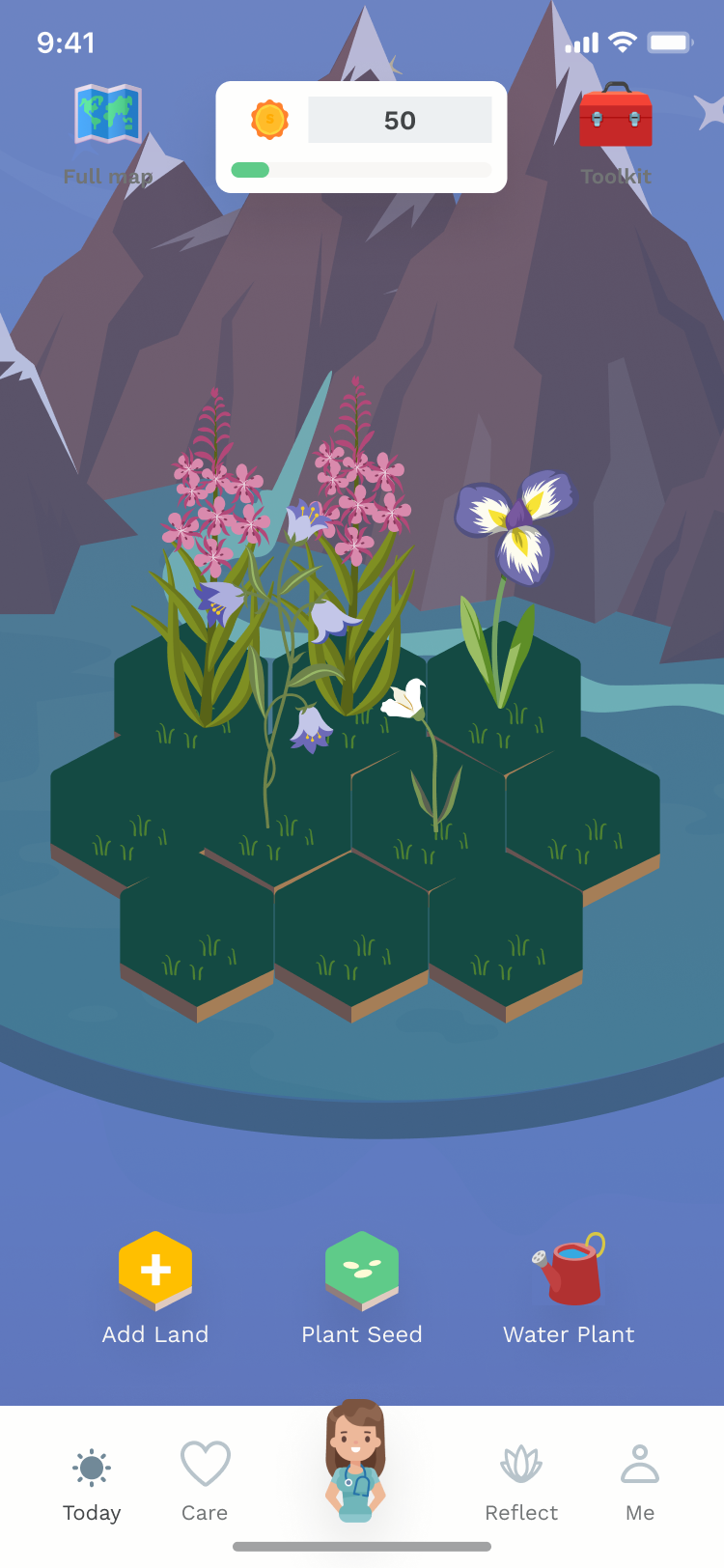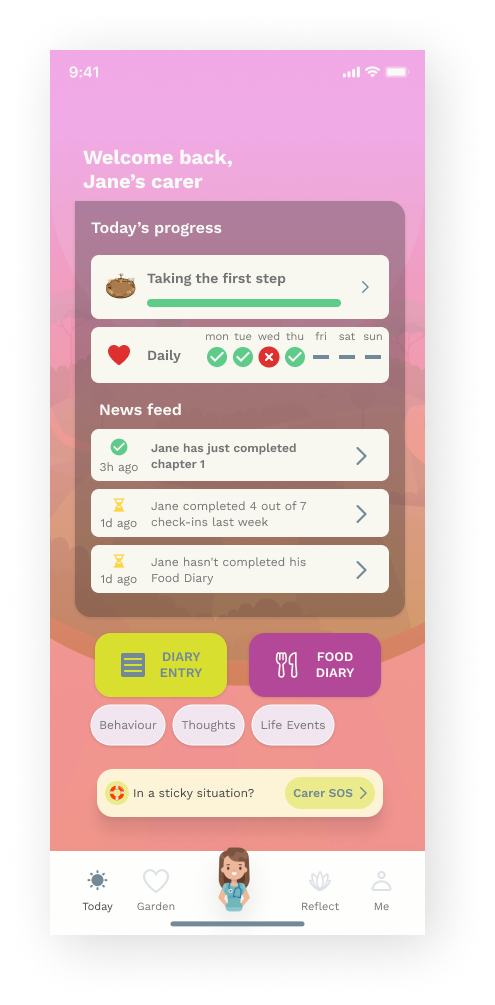UX Lead at Univa Health
Overview
At UNIVA, I led the UX design of a dual mobile app platform to support young people recovering from eating disorders and their carers. The company’s vision was to combine clinical guidance, behaviour change theory, and engaging gamification into a supportive 20-week recovery journey.
Our goal was to deliver a product that felt safe, empowering, and emotionally engaging, while remaining clinically sound and accessible.
My Role
- Lead UX Designer (2024–2025)
- UX Strategy & Research
- Product Discovery Workshops
- Information Architecture
- UI Design & Prototyping
- Design System
- Usability Testing
The Challenge
Eating disorders are deeply personal and complex. The product had to support emotional regulation, engagement, and adherence across two very different user groups:
- Patients (ages 13–21): often sensitive to triggering content, easily overwhelmed by tracking.
- Carers (often parents): seeking clarity, reassurance, and structured guidance.
Both apps needed to reflect a shared recovery journey, with different interfaces, tone, and features.
Discovery Process
We kicked off with extensive user research, involving:
- Workshops with psychologists, CBT specialists, carers, and youth.
- Mapping out clinical treatment pathways and user pain points.
- Benchmarking digital therapeutics, mental health apps, and narrative games.
Key insights shaped our core UX pillars:
- Progress should feel organic and non-judgmental.
- Support must feel emotionally safe.
- Users want personalisation without pressure.
Design Approach
The Patient App – Gamified Recovery
We created a virtual garden metaphor, where each completed activity, check-in or reflection helped the garden grow.
- Biomes like Forest, Desert, or Mountains unlocked through module progression.
- A Virtual Care Guide avatar offered onboarding and week-by-week encouragement.
- Users earned “Soles” (points) to unlock items, rewards, and plants.
- Designed with no explicit weight, food, or calorie metrics, to reduce anxiety triggers.

The Carer App – Structured Support
For carers, we removed gamification and focused on clarity, confidence, and empathy:
- “What to Say” feature: a library of supportive phrases tailored to difficult emotional situations.
- Chapters on understanding EDs, emotional communication, and treatment.
- Sync with patient app (privacy-respecting) for visibility into progress.

Design System
I developed and maintained a design system, shared Figma component library across both apps:
- Modular cards, notifications, tooltips, and avatars.
- Designed for high contrast and accessibility (WCAG 2.1 AA).
Outcome
- Successfully completed design of MVP for both apps.
- Positive feedback from early testers (patients, carers, clinicians).
- Highlighted as a promising case of digital therapeutics + gamification.
Reflection
Designing for mental health recovery is deeply human and incredibly humbling. At UNIVA, I learned how to build tools that support—not demand—change, and how thoughtful design can offer both clarity and care.
See Also
< Back to Home
